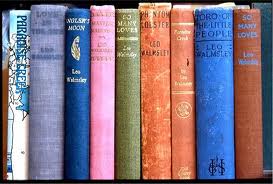NonFiction
Verdict: Read It
I had hear of Mukhtar Mai before in name, but not in situation. I tend to like biographies/self biographies, so I picked this up.
The story is horrifying heard from her point of view. It also underlines a huge mindset and atrocity bomb that India and Pakistan continue to foster with an almost loving persistence. Class and gender wars are not a thing of the past unfortunately.
Mukhtar Mai is gang raped as a "punishment" for her younger brother flirting with a powerful family's sister. In reality, it's an attempted land grab due to the inability of a rich powerful family to see "lower class" people hold land. It's heartbreaking and incredibly not that uncommon.
What is uncommon however, is Mukhtar Mai's response to it. After taking time to process her trauma, she decided that she would stand for what she thought was right and say no. She takes us through the process of dealing with corrupt police and courts and in the end, still not getting justice. Again, incredibly common. Still bound and determined to rise, Mukhtar Mai opens a school with funds that came in from concerned parties.
If you understand anything about Class and Gender wars in India and Pakistan, you understand how remarkable Mukhtar Mai's response is. It's unheard of, and it's phenomenal. She is an inspiration to many women, myself included, and has done her part to make the world one she wants to live in.
Mukhtar Mai isn't educated. She isn't a great story teller or writer and it's obvious that he words are filtered through writers. She circles back around often and jumps time lines telling her story, but with all she's suffered and achieved, she's entitled to tell her story however she wishes to.
Please read this book. It will give you a new perspective on feminism and basic human rights. It will inspire you that a woman discarded the typical reaction to a humiliation of this type (suicide in her part of the world) and rose far above that to help others and be a light. The only way to combat these type of horrifying incidents is to continue to promote awareness of it being unacceptable and punishable in society. The only way to deal with police taking advantage of uneducated, shamed women in an immoral manner is to keep bringing these instances to light and seeing through the punishments. The only way to deal with courts taking soft line stances on Class, Gender, and Economic wars are to shine a huge spotlight on them and continue pressuring the courts as well to step into the 21st century and stop pandering. The only way to ensure that women are not continuing to be trapped in darkness and illiteracy is to make education for girls a priority and a valued thing. Mukhtar Mai has led the way in however she could.
Read it!
~Becky~
